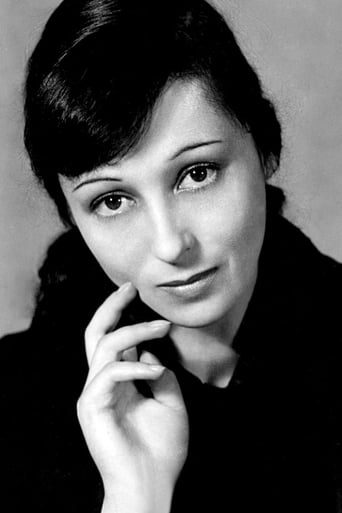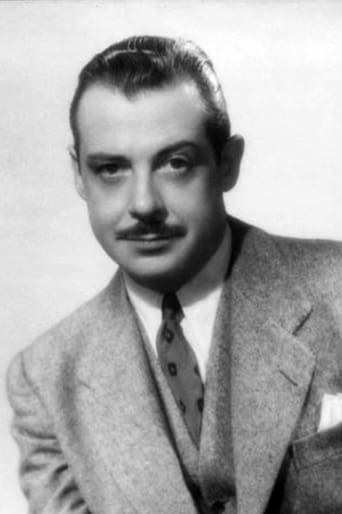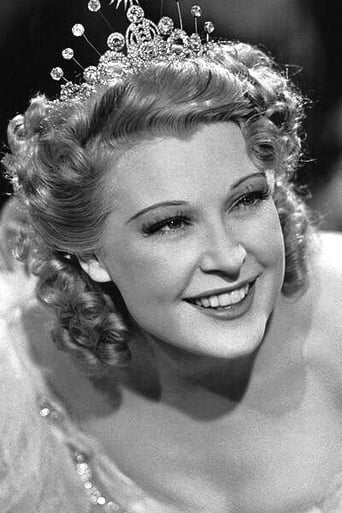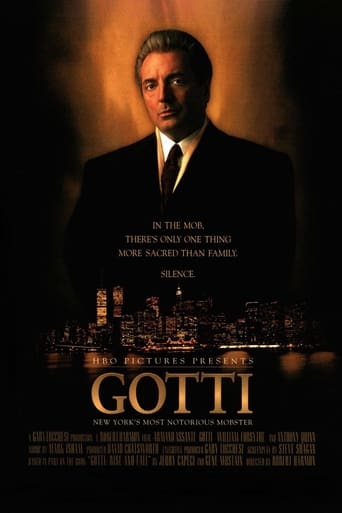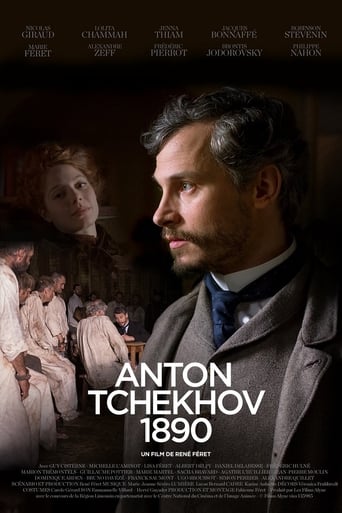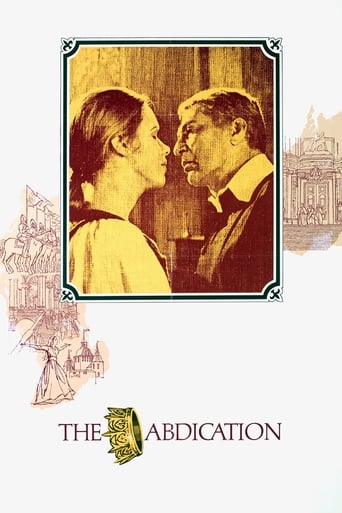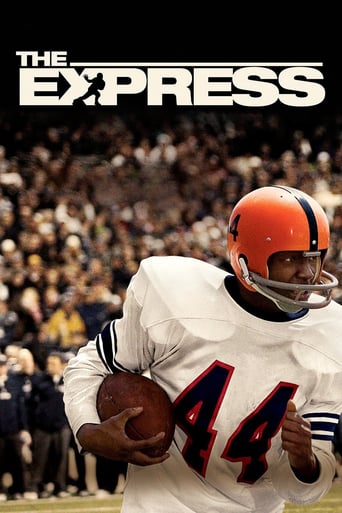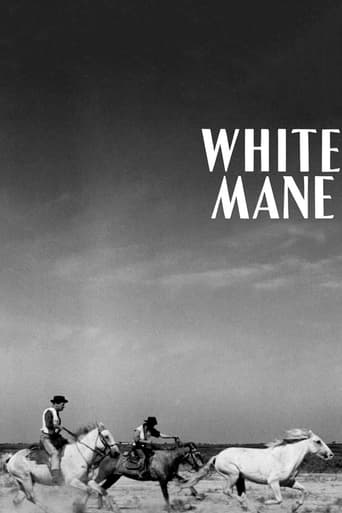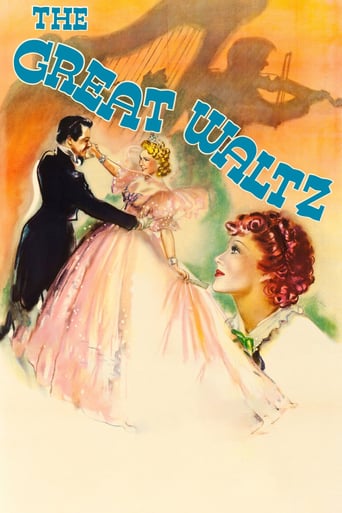
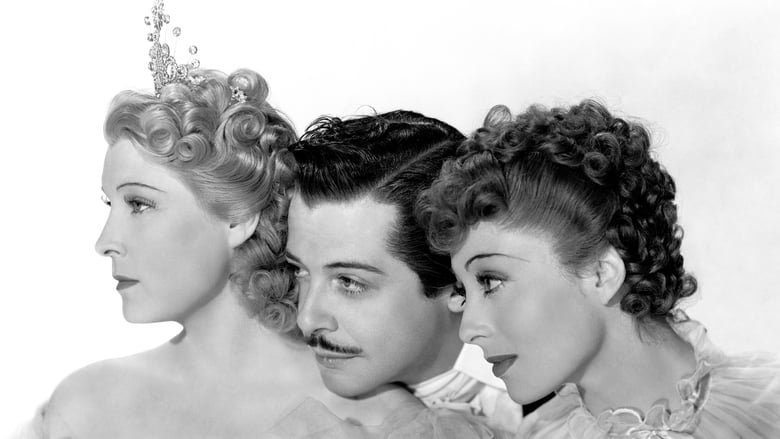
The Great Waltz (1938)
Composer Johann Strauss risks his marriage over his infatuation with a beautiful singer.
Watch Trailer
Cast
Similar titles
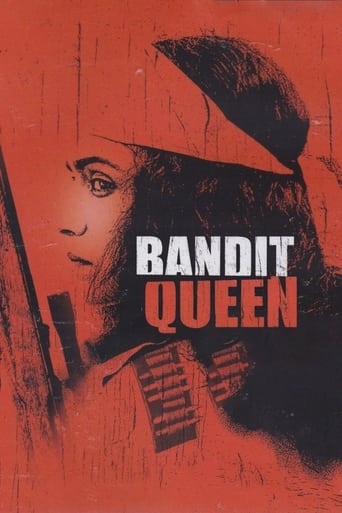
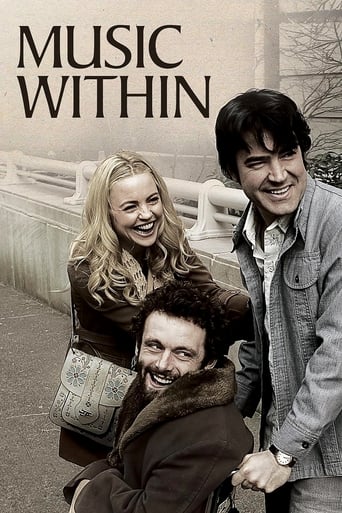
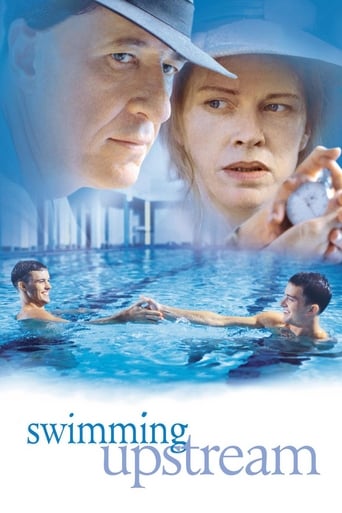
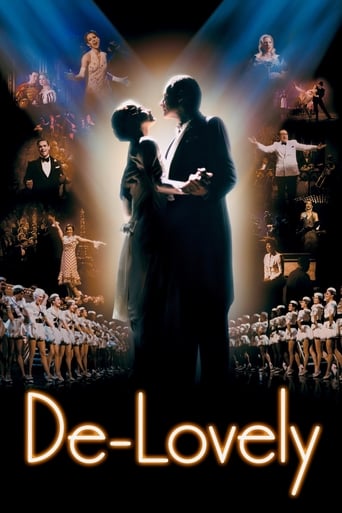
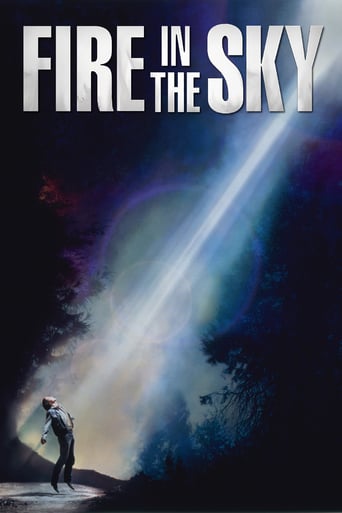
Reviews
I love this movie so much
To me, this movie is perfection.
In truth, there is barely enough story here to make a film.
Each character in this movie — down to the smallest one — is an individual rather than a type, prone to spontaneous changes of mood and sometimes amusing outbursts of pettiness or ill humor.
This picture is mainly a showcase for the magnificent singing and trilling abilities of Gorgeous Korjus, although I wish she would have done more singing than trilling. That mischievous grin she often has during the film is captivating. The opening credits imply that the only three real characters in the film are Strauss, his mother, and Franz Josef (maybe Dommayer). They were merely used to develop this fictitious story about Strauss. There are a few tidbits of truth in it. Strauss Senior did want his son to be a banker, and there was a Dommayer establishment and an Austrian revolution in 1848.Strauss was married three times, but only one ended in divorce, so if he was a rake, he didn't marry and dump.I was disappointed that the wonderful tenor voice of George Houston (Fritz Schiller) was not used more in the film, and it is sad that his career did not advance more successfully before he passed away much too early.
A classic Oscar-winning Musical which rather than a proper biopic of Austrian composer Johann Strauss II can be dubbed 'A Fantasia on the Life and Loves of The Waltz King'. Curiously, one wonders why Hollywood deemed it necessary to make not one but three films about him – the others being the Walt Disney version THE WALTZ KING (1963) and Andrew L. Stone's maligned 1972 remake of the movie under review (virtually contemporaneously to it, Stone had already made THE GREAT VICTOR HERBERT [1939]); unfortunately, I did not manage to track down copies of them for comparison's sake!In this respect, with MGM behind it, the original was turned into an all-stops-out production – amassing the best talent that money could buy to provide lavish production values complementing the famous musical pieces. Still, in one of Hollywood's endearingly odd decisions, the project was handed to a French director (Duvivier's first of 8 films made in the English language over the course of 12 years) and star (Fernand Gravet, whose career abroad began 5 years prior to this and ran practically till the end of his life): a Viennese Waltz may epitomize romance but, in Hollywood's eyes, the finest purveyors of that sentiment were the Gallics! In front of the camera, however, the studio was just as eclectic – with the roster of character actors emanating from Germany (Curt Bois, Herman Bing and Sig Rumann), Russia (Leonid Kinskey), Britain (Lionel Atwill) and even the American Deep South (Henry Hull) and there were even two international female stars in German Luise Rainer (still living at the venerable old age of 101!) and Polish Miliza Korjus.Gravet makes for a vigorous Strauss (called "Schani" throughout!): we hear the composer's most durable pieces (which I grew up watching as underscoring for Tom & Jerry and Looney Tunes cartoons boasting a classical music setting!), apart from a few songs performed by Korjus (though her yodeling became grating after a while!) set to new lyrics by none other than Oscar Hammerstein II. We even get to 'learn' how "Tales From The Vienna Woods" and "The Blue Danube" were conceived: the former when Gravet and Korjus take respite from the revolution amidst the green in Christian Rub's coach, with the bustling activity therein – a superbly orchestrated scene (no pun intended) – inspiring Strauss; the latter has the composer sitting forlorn at the docks after Korjus leaves him behind (to be able to return to devoted wife Rainer) and once again the city, its workers and nature itself combine to fire up his creative spirits which then dissolves to practically the whole world dancing to its strains!Along with Grace Moore from ONE NIGHT OF LOVE (1934), Korjus was the only soprano to be Oscar-nominated: whatever Sternberg's contribution here, he had directed Moore herself in the recently-viewed THE KING STEPS OUT (1936) – which also featured an even more animated Bing, whereas Atwill had co-starred in the director's upcoming THE DEVIL IS A WOMAN (1935). That said, Rainer acts Korjus off the screen (thankfully, however, the plot only slips into melodrama during its last act): pity that she had just won 2 Oscars, one of them for another MGM Musical biopic which also happened to have the epithet "great" in its title! The film deservedly won for Joseph Ruttenberg's exquisite black-and-white cinematography – especially effective are the rays of light passing though the tree branches in the Vienna woods, the sweeping camera move as Gravet and Korjus dance along the city square to the same tune, and Atwill's shadowy confession to Rainer towards the end. It was also nominated for editing: notable in this respect are the two series of quick cuts (unusual for the time) depicting the emptying town square and Rainer's anguished appearance at the opera, but also the transition from the common Viennese people enthusiastically dancing in the streets (to Strauss' latest composition) to a sedate high society ball.Finally, as a side-note, it is incongruous that Austria could produce romantics like Strauss and master film-maker Max Ophuls (who celebrated Vienna in much of his work), visionary directors like Fritz Lang and Sternberg himself but also a certain bloodthirsty dictator named Adolf Hitler!
Boy, did I hate watching this film. Now it wasn't because I dislike the music of Strauss--it's very nice. But the movie isn't really a movie at all, but a HUGE showcase for LOTS of his music--and often its sung to in an operetta-like way. Frankly, there was way too much of this and not enough story and the result is an amazingly dull film. In many ways, it reminds me of making a meal out of wax fruit--it LOOKS nice but is not the least bit satisfying. Now this problem was heightened by the bad casting decisions. The film is, for the most part, made up of nobodies--people with no particular acting ability but who looked nice in nice clothes and could sing. The only big name in the film is poor little Luise Rainer--who seemed totally lost. She wasn't a singer and her part was completely undeveloped. And, there was also Hugh Herbert--a guy who seemed to have absolutely no reason for being in this film, as his style and this film are polar opposites.By advice is buy a CD of Strauss' music or listen to some on Rhapsody and then watch a GOOD film--one with a plot. Also, with parts like this, I could certainly understand the two-time Oscar winner, Rainer, retiring soon after making this film.
Luise Rainer, (Poldi Vogelhuber) gave an outstanding performance with her great singing talents and great acting. Fernand Gravey, (Johann Strauss gave a great supporting role in this 1938 black and white film. If you like great Strauss Waltz's and a very romantic picture concerning what inspired Strauss to compose his famous waltz's and also an affair he has with Poldi. Count Anton Hohenfried, (Lionel Atwill) gives a great supporting role as the other man who is in love with Poldi and even goes to Richard Strauss wife and tells her what is going on and tells her to fight for her husband. There is plenty of comedy and great scenes with men and women dancing with fancy dresses and large dance halls. This is a must see great Classic Film which will be enjoyed by many generations to come.
